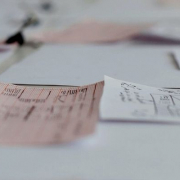The taxation of crypto as such is straightforward. Crypto is a CGT asset and so the normal CGT rules apply.
Taxation of Crypto
Chances are high that your clients have started to own or trade in cryptocurrency. And so you need to know how to tax this thing. In this episode, Adam O’Grady, Assistant Commissioner of the ATO will discuss the taxation of crypto with you.
Here is what we learned but please listen in as Adam O’Grady explains all this much better than we ever could. And we might have got something wrong. So please see the following as our work and not as a public statement by the ATO.
To listen while you drive, walk or work, just access the episode through a free podcast app on your mobile phone.
Taxation of Crypto
Cryptocurrency is a digital ‘asset’ that represents a unit of value, often enabled using a blockchain. That is the official definition. However, some dispute that crypto is even an asset, but let’s put that aside.
Crypto has a flair for freedom, anarchy, and revolt since it operates independently of central banks, central authorities, or governments, with very few exceptions. One exception is El Salvador which accepted Bitcoin as legal currency in September 2021.
But this freedom and decentralisation also come with significant risk, especially if you use an exchange or platform overseas. Anybody can start a new exchange or cryptocurrency.
According to the ATO, the use of crypto is rapidly expanding. According to ATO data, 56% of those who transacted in cryptocurrency in 2021 did so for the first time.
CGT Asset
Cryptocurrency is a capital gains tax asset (‘CGT asset’). Each cryptocurrency is a separate asset. In fact, each coin is a separate asset.
And with that the usual capital gains tax rules apply.
CGT Event
The most common CGT event for cryptocurrency is the disposal of a coin. That is CGT event A1.
Examples of a disposal are:
- Sell or gift crypto to somebody else;
- Exchange one cryptocurrency for another;
- Convert crypto to a fiat currency, e.g. Australian dollars (AUD);
- Use cryptocurrency to buy goods or services;
- Deposit crypto on an exchange for the right to receive crypto, for example as collateral for a loan.
Such disposal of a cryptocurrency gives rise to a capital gain or loss, which you calculate as market value in Australian dollars (AUD) of what you receive less cost base in AUD. Whatever you paid for the coin converted to Australian dollars that is its cost base.
Cost Base
Cost base is the cost of ownership – so the purchase price of the coin plus any costs to acquire, hold or dispose the coin, such as brokerage fees, transfer costs, platform fees, and interest.
The cost base doesn’t include costs that can be claimed as a tax deduction.
Tax Deduction
If you receive income from your crypto, for example through staking, then the costs related to this income, for example interest on a loan, are tax deductible. If not, then the interest forms part of the cost base.
50% CGT Discount
If you hold crypto as an investment for 12 months or more, you can claim the 50% CGT discount on any capital gain you make on disposal.
Forking
If a cryptocurrency you own forks, due to a chain split, you receive a new cryptocurrency (such as Bitcoin Cash being received by Bitcoin holders). There is no tax upon receipt and generally a nil cost base upon disposal, so whatever you receive is your capital gain.
Digital Wallet
A digital wallet is like a digital version of an old-fashioned purse people used to carry coins and notes around in. It contains all the different types of crypto you bought.
You don’t get taxed on the wallet itself. And you don’t pay any tax on the unrealised gains or losses of the coins in this wallet. Instead, you pay tax whenever you have a CGT event.
Personal Use
Most crypto is not used for personal use. Personal use only applies if you hold the coins for a very short time to pay for personal use or consumption.
The longer a cryptocurrency is held, the less likely it is that it will be a personal use asset – even if it is ultimately used to purchase items for personal use or consumption.
If your crypto was a personal use asset, then any capital gains from crypto acquired for less than $10,000 would be disregarded for CGT purposes.
Gift
If cryptocurrency is gifted to you, you pay no tax upon receiving the gift. But you pay tax on any income for example from staking as well as when you sell the crypto and make a capital gain.
If you gifted crypto to someone, you have a disposal of a capital asset and make a capital gain or loss. Same as if you gifted someone a house, you would be deemed to have disposed of it for market value.
Inheritance
If you inherit crypto, you don’t pay tax at the time of receiving the crypto but do need to pay tax on any income produced, and, again, there might be capital gains or losses when you dispose of it.
Your cost base is the cost base of the deceased.
Assessable Income
Crypto is a CGT asset and usually pays you no assessable income. Shares pay dividends. Bank deposits pay interest. Crypto usually pays nothing, but there are some exceptions, for example rewards in a staking or liquidity pool.
If you receive a reward for allowing your crypto to be part of a pool for example a staking pool, then these rewards are assessable income, ie. you pay tax on these as income and not as a capital gain.
Business
If you run a business of crypto trading or mining or a crypto exchange, then all your crypto is trading stock and the CGT rules don’t apply. So no 50% CGT discount but also no ring-fencing of capital losses against capital gains. All gains and losses go straight into your income
If you carry on a business that is not a cryptocurrency business but uses cryptocurrency, you account for cryptocurrency as you would for other assets or items used in their business.
To determine whether you are a trader or a business trading cryptocurrency, the following factors have been taken into account in court cases:
- The nature and purpose of your activities
- The repetition, volume, and regularity of your activities
- Whether your activities are organised in a business-like way
- The amount of capital invested.
Look at the principles set out in Taxation Ruling 97/11 or use the ‘Am I In Business?’ tool on the ATO website.
Commercial Loss Provisions
The non-commercial loss provisions only apply if you run a business. The four tests (the income requirements of <$250k, and then one of the four other tests – assessable income test, profits test, real property test, and other assets test) apply to crypto trading just as they apply to a share trader or any other business.
Using Crypto to Pay
If you are a business and don’t trade crypto, but use crypto to pay something, the value of the transaction is reported in Australian dollars, just as for any other non-cash/barter transaction.
The transaction is a CGT event and you account for it through the CGT rules.
Paying salary and wages in cryptocurrency is a FBT property benefit, with the value established at the time the benefit is provided. In absence of a valid salary sacrifice arrangement, you will need to ensure that PAYG obligations are met.
CFDs
CFDs are taxed on revenue account even if they track a cryptocurrency, and not on capital account. See TR 2005/15 Income tax: tax consequences of financial contracts for differences for more details.
Record Keeping
One big challenge for the taxation of crypto is record keeping. Every coin is its own CGT asset and so you need to keep meticulous records of what happens to each coin.
Summary
Unless you run a crypto trading or mining business, the taxation of crypto is firmly set in CGT land. Crypto is a ‘normal’ CGT asset – so not a personal use asset or trading stock – subject to ‘normal’ capital gains rules:
- No tax on unrealised gains – you only pay tax when you realise the gain
- Cost base and reduced cost base don’t include deductible costs
- Access to the 50% CGT discount after 12 months holding
- Offset of capital losses only with capital gains, but not with other income
- Capital gains are capital proceeds less cost base
- Capital proceeds is the market value of what is received
- Cost base are all costs incurred to acquire or hold the crypto, i.e., brokerage fees, transfer fee, platform fees, borrowing expenses including legal fees.
MORE
Disclaimer: Tax Talks does not provide financial or tax advice. All information on Tax Talks is of a general nature only and might no longer be up to date or correct. You should seek professional accredited tax and financial advice when considering whether the information is suitable to your or your client’s circumstances.
Last Updated on 04 April 2022
Tax Talks spoke to Adam O’Grady - Assistant Commissioner at Individual and Intermediaries - for more details.







